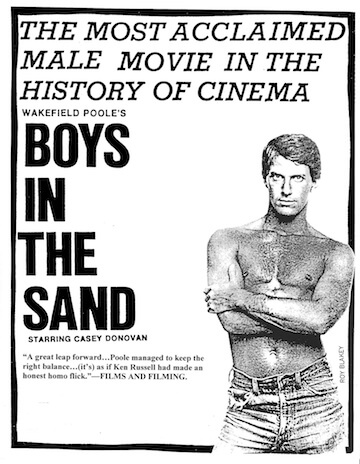When a phrase makes it into a Trump speech, its use has likely peaked. But America’s media hasn’t gotten over its obsession with “cancel culture” just yet. Like “political correctness,” “fake news” and “identity politics,” it’s turned from an actual concept into a meme that stops thinking dead in its tracks. Depending who’s speaking, it refers to different things. Just as no one goes around praising TV shows or movies for being politically correct, few people claim to be a part of cancel culture.
For a long stretch now, #[celebrityname] isoverparty has trended every day on Twitter. A new celebrity went under the chopping block of social media disapproval. The problem is that their offenses varied wildly, from singers Slayyyter and Camila Cabello tweeting racist slurs when they were teenagers to people promising to cancel their Amazon Prime subscriptions because the streaming service listed Oscar Isaac fourth in the cast of “Star Wars: the Last Jedi.” I suppose one could make a case that this is a slight against a Latinx actor, but anyone who can get angry at Amazon over something this petty but never spoke out about its monopoly over web hosting, collaboration with ICE or notoriously abusive work conditions needs some new priorities.
But it’s easy for pundits to cherry-pick tweets and other social media statements as if they represented much larger cultural trends. The urge to spend the week canceling a different celebrity every day suggests a conflation of stan culture — the love for tabloid drama — and social justice. The ambiguity of a trending hashtag also makes it hard to perceive irony: many of the people who posted #AmazonPrimeisoverparty were probably bored and trying to blow off steam during this difficult COVID period.
In the last few months, pop singer/ rapper Doja Cat has been called out for genuinely troubling behavior and statements, long after old tweets of her saying “faggot” were unearthed and she was already “canceled” the first time. Just after Doja Cat’s song “Say So” hit #1, videos of her chatting with neo-Nazis turned up, as well as an old song named after the racist slang phrase “Dindu Nuffin.” Yet “Say So” is still hanging on, and her career does not seem to have taken a tumble.
Kanye West has gone further than any celebrity in recent memory to piss off his fans, but his Yeezy fashion line made him a billionaire and his last album, “Jesus Is King,” still got to #1 and went gold. This version of cancel culture represents a distraction akin to binging TMZ videos, not a case of real oppression aimed at “problematic” celebrities.
Writers like Conor Friedersdorf, Andrew Sullivan, Jonathan Chait, and Bari Weiss have devoted much of their time to convincing readers that an army of Stalinists is gathering on college campuses. Even though Friedersdorf and Chait claim to be liberals, they’re de facto propagandists for an ideology trying to transform college into a very expensive trade school for STEM fields by demonizing liberal arts as political indoctrination. However, at the moment parents must be more concerned with whether their children will be attending college via Zoom this fall than whether their English class syllabus prioritizes Toni Morrison and Chinua Achebe over Shakespeare.
The same old debates about political correctness dating back to Allan Bloom’s 1987 book “The Closing of the American Mind” are now being recycled via cancel culture. It’s very odd that anyone thinks this should be a priority while COVID is running unchecked in the US, spreading the disease has become a symbol of conservative pride, and the DHS is kidnapping protesters off Portland’s streets.
When former New York Times columnist Weiss was a Columbia student, she became a public figure by calling for Professor Joseph Massad to be fired over his anti-Zionist political views. Her supposed championing of free speech does not extend to people who question the Israeli state’s merits. Psychologist and self-help author Jordan Peterson rose to fame by misrepresenting a Canadian civil rights law that added transgender people as a protected class as an attack on his free speech. Yet he threatened to sue a woman who called him sexist in a Vox article and planned to launch a database of leftist professors who offended him. Neo-McCarthyism, anyone?
Feminist video game critic Anita Sarkeesian, as well as other women in the gaming industry, had to cancel public appearances and even driven from from their homes due to death threats from far right fanboys who couldn’t handle her YouTube videos; the ensuing backlash became known as GamerGate, birthed the alt-right, and helped America down the road leading to Trump’s election. Laws criminalizing support for the BDS movement against Israel have broad support from American politicians. Whatever one thinks of BDS, Americans should be free to advocate any policy against a foreign government. In a true violation of her First Amendment rights, not a ban from YouTube or a picket of a college speech, Palestinian-American public school teacher Bahia Amawi was fired in 2018 because she refused to sign an oath declaring her opposition to BDS. Isn’t it ironic that journalists and novelists with enormous institutional support, who ridicule the concept of safe spaces on college campuses, take criticism as censorship when far more vulnerable people are likely to suffer from it?
Cases where people have been canceled on social media with real consequences exist. David Shor was fired after tweeting a study that suggested ‘60s riots harmed Democrats in elections. That’s appalling, but few people have suggested otherwise. Beauty YouTuber James Charles was falsely accused of being a sexual predator by several makeup industry influencers who had become business rivals, which led to him losing millions of subscribers and becoming deeply depressed. An intra-minority debate around trans YouTuber ContraPoints’ views on non-binary identity blew up and led to a debacle where her friends were told to publicly denounce her without knowing why.
But above a certain level, fans will always stick around. While ContraPoints’ video about this situation details the pain it caused her, offering a critique of cancel culture grounded in a personal experience much different from Weiss and Sullivan’s, it’s been seen by 2,200,000 people.
Even if J.K. Rowling’s recent dive into unapologetic transphobia — a faint theme lurking behind many accusations of cancel culture run wild — cuts her audience in half, her next novel will still succeed beyond the wildest dreams of most other writers. The incidents where careers have been ruined mostly involve credible accusations of real crimes committed by people whose fans take their politics seriously, like the queer punk band PWR BTTM. On the eve of its second album’s 2017 release, allegations of sexual assault made against singer/ guitarist Ben Hopkins led to the group being dropped by both record labels to which it had been signed and its music being pulled from streaming services.
Social media shaming exists for several reasons. One can’t emphasize enough that Twitter, Facebook, and YouTube’s algorithms are designed to promote drama and conflict. But another is the failure of our legal system to deal with sexual harassment and assault. We’ve arrived at an odd position where men like Woody Allen and Louis C.K. have never stood trial for their alleged child molestation and admitted sexual harassment, respectively, but the marketplace has assigned them a penalty. It’s as though C. K. went through criminal proceedings with the result that he lost $35 million (if his jokes are reliable), his film “I Love You, Daddy” could not be released, he was barred from TV, and he had to spend a year out of the limelight before touring comedy clubs again. The idea that his main responsibility should be to the women whose careers were ruined because they spoke about his actions got lost. Roman Polanski fled his ongoing American trial in 1978, and decades later one consequence is that Americans have not been able to see his last two films. As a form of justice for raping a 13-year-old girl it’s perverse and inadequate, but this is the way our capitalist marketplace has responded to consumers’ political demands (as well as their perceptions of how it can make money).
Social media shaming can be mindless and even dangerous, but it can also be positive. After New York Times editor James Bennet ran an op-ed by Arkansas Senator Tom Cotton calling for the military to attack protesters, the tweets by his Black colleagues at The Times saying that Cotton’s views endangered their lives led to his resignation. That’s not a “Twitter mob”. It was a use of social media to circumvent workplaces’ hierarchical nature, which typically quashes internal dissent.
The Karen is in danger of becoming another mindless meme, used as an insult by white people who don’t question how close their attitudes may be to hers, but Christian Cooper might have wound up arrested or worse in Central Park if he couldn’t use his phone to put Amy Cooper on public blast. All this suggests that we should think about accountability culture instead, where pundits can’t act as provocateurs and then play innocent when they get angry responses and ordinary people can engage in dialogue with public figures who piss them off. If the flaws of this system are glaring, why does the American legal system, which enforces racism and classism while promoting sky-high recidivism, look better to anyone? Why should someone who can’t afford a defense lawyer care that they don’t exist in Twitter beef?
The norms of American culture are shifting, as the Overton Window has been pushed both to the left and right since 2016. Advocating for socialism and defunding the police is no longer taboo (although it hardly means these will become policy any time soon), while questioning the legitimacy of trans identity or a biological link to BIPOC’s IQ results is becoming one in media to the left of Fox News and Breitbart. This may suggest why Weiss and Sullivan announced that they no longer felt at home at The Times and New York magazine, respectively, and quit. But any talented writer with no Ivy League connections might wonder where the chain of cancelation really starts. Let’s face it: until recently, a trans woman never could have become a regular Times editorial contributor. Noam Chomsky wrote that the mainstream American media allows vigorous debate only within rigorously guarded ideological boundaries. We’re in a moment of extreme flux, where these boundaries are in question. So is the notion of what constitutes the media itself: some podcasts have at least as many listeners as the average cable news program gets viewers. It’s very hard to feel hopeful about anything in American politics now, but the possibility of positive change rather than complacency is real. So the concept of cancel culture is very convenient for media gatekeepers who don’t want to be challenged.



































